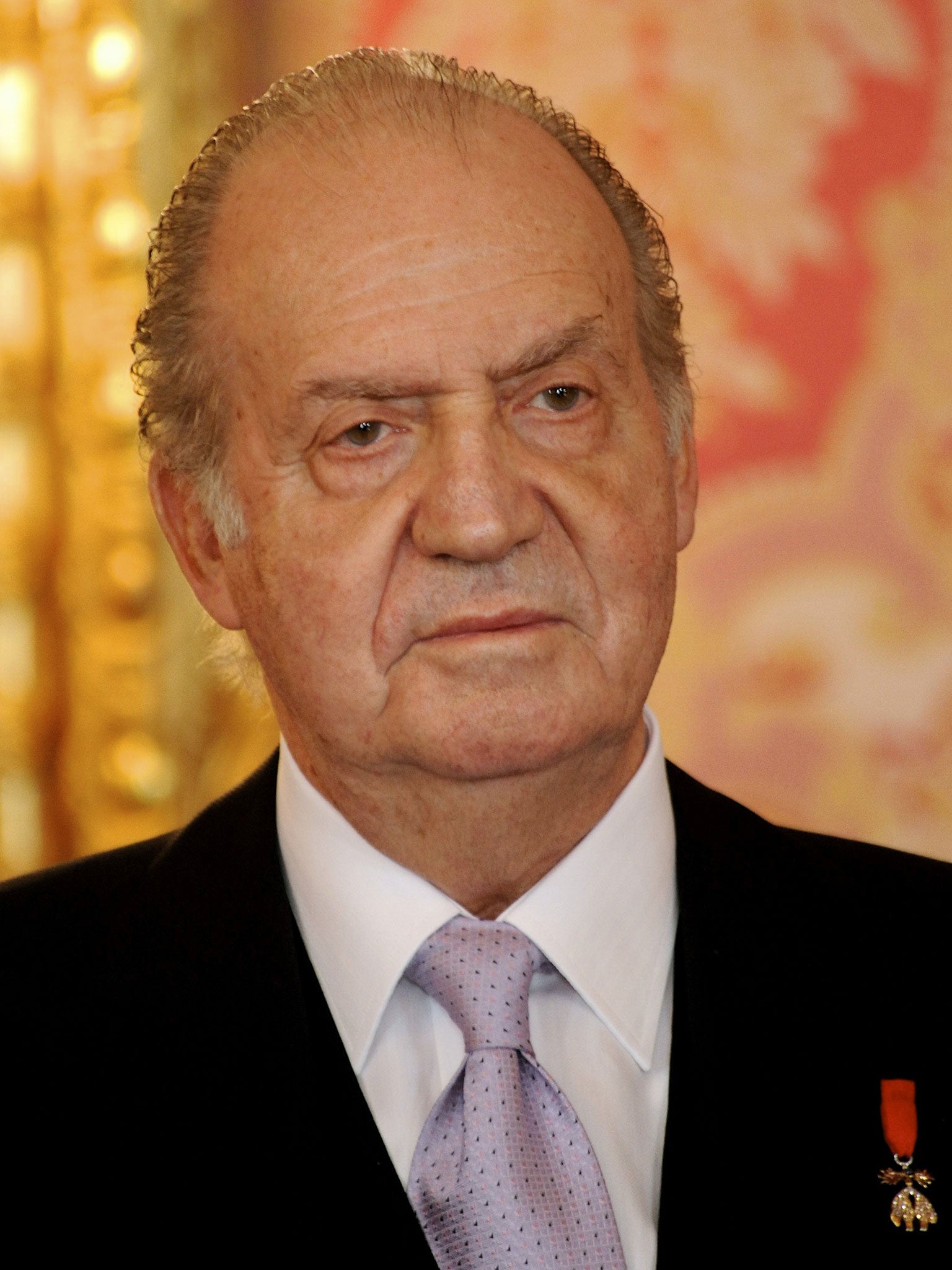The rise and fall of King Juan Carlos, 'saviour of Spain'
A series of PR gaffes and the whiff of financial scandal in the midst of recession have left the monarchy's popularity at an all-time low

Your support helps us to tell the story
From reproductive rights to climate change to Big Tech, The Independent is on the ground when the story is developing. Whether it's investigating the financials of Elon Musk's pro-Trump PAC or producing our latest documentary, 'The A Word', which shines a light on the American women fighting for reproductive rights, we know how important it is to parse out the facts from the messaging.
At such a critical moment in US history, we need reporters on the ground. Your donation allows us to keep sending journalists to speak to both sides of the story.
The Independent is trusted by Americans across the entire political spectrum. And unlike many other quality news outlets, we choose not to lock Americans out of our reporting and analysis with paywalls. We believe quality journalism should be available to everyone, paid for by those who can afford it.
Your support makes all the difference.When it was announced late last week that King Juan Carlos was undergoing another operation, the 75-year-old's fifth in 18 months, the fourth on his hips and the 13th overall, the first question posed at the news conference in Madrid's Zarzuela Palace could not have been more direct: was there any discussion about the King's abdication?
The answer from the royal spokesman, Rafael Spottorno, was a firm "no". But it badly missed the point. Until as recently as two years ago, even asking such a question about King Juan Carlos in Spain, or the possible removal of the monarchy altogether, would have caused shock waves. Now, as Isobelo Herreros, who is responsible for overseeing pro-republican strategies for the United Left coalition, Spain's third largest political grouping, said: "Republicans are no longer seen as plague carriers." Mr Herreros is convinced the monarchy's days are numbered, and predicts it will be gone in "less than 10 years".
Surveys show that the number of Spanish republicans more than tripled between 1998 and the end of last year, from 11 to 37 per cent. And the latest study, by the state polling institute CIS, shows that public confidence in the royals fell in April to 3.68 points out of 10 – from 4.89 in 2011, which was already the monarchy's first "fail grade" since surveys began. That was just before the King's son-in-law, Iñaki Urdangarin, was named in a corruption investigation that has spawned months of lurid headlines over his alleged siphoning off of millions of euros of public money.
While Spaniards tend to overlook the King's playboy reputation, the sense of disconnection between Juan Carlos and his country hit a new low in April last year when it was discovered that one of his hip injuries occurred during an expensive hunting trip to Botswana. Shortly before, he claimed Spain's youth jobless figures "kept him awake at night".
As a photo of Juan Carlos standing next to a dead elephant – rifle in hand, from a previous safari – started to circulate, he was sacked by the World Wildlife Fund as honorary president. The King made an unprecedented apology, but his popularity rating in a subsequent poll was lower than that of the country's tax inspectors.
And anti-royal protests – including one organised for last night in Madrid – have become a facet of life in recession-battered Spain. Backing for the monarchy is falling most sharply among the young.
"Spain has had a lot of monarchies," Fermin Bouza, professor of sociology at Madrid's Complutense University, said earlier this year, "but they've never been too close to the population, they've been imposed on them." He added: "In the middle of a massive recession, with six million unemployed, the monarchy has become associated with corruption and there is now nothing to justify a medieval institution like it."
While republicans talk of an end-game, with the King's abdication no longer unrealistic, neither main political party, the PP or the PSOE, feels the time is right. A constitutional crisis with Catalonia looms and, among their supporters, the King is seen as a bulwark against that.
Although, physically, Juan Carlos looks a shadow of the man who led his country to democracy in the 1970s, his son, Crown Prince Felipe, is less affected by the monarchy's popularity slump. His speech in favour of Madrid during the failed 2020 Olympic bid was perhaps the only high point of that failure.
Yesterday's demonstration (advertised by pictures of elephants, a reminder of the Botswana trip) indicates the degree of anti-royal feeling at street level.
Join our commenting forum
Join thought-provoking conversations, follow other Independent readers and see their replies
Comments